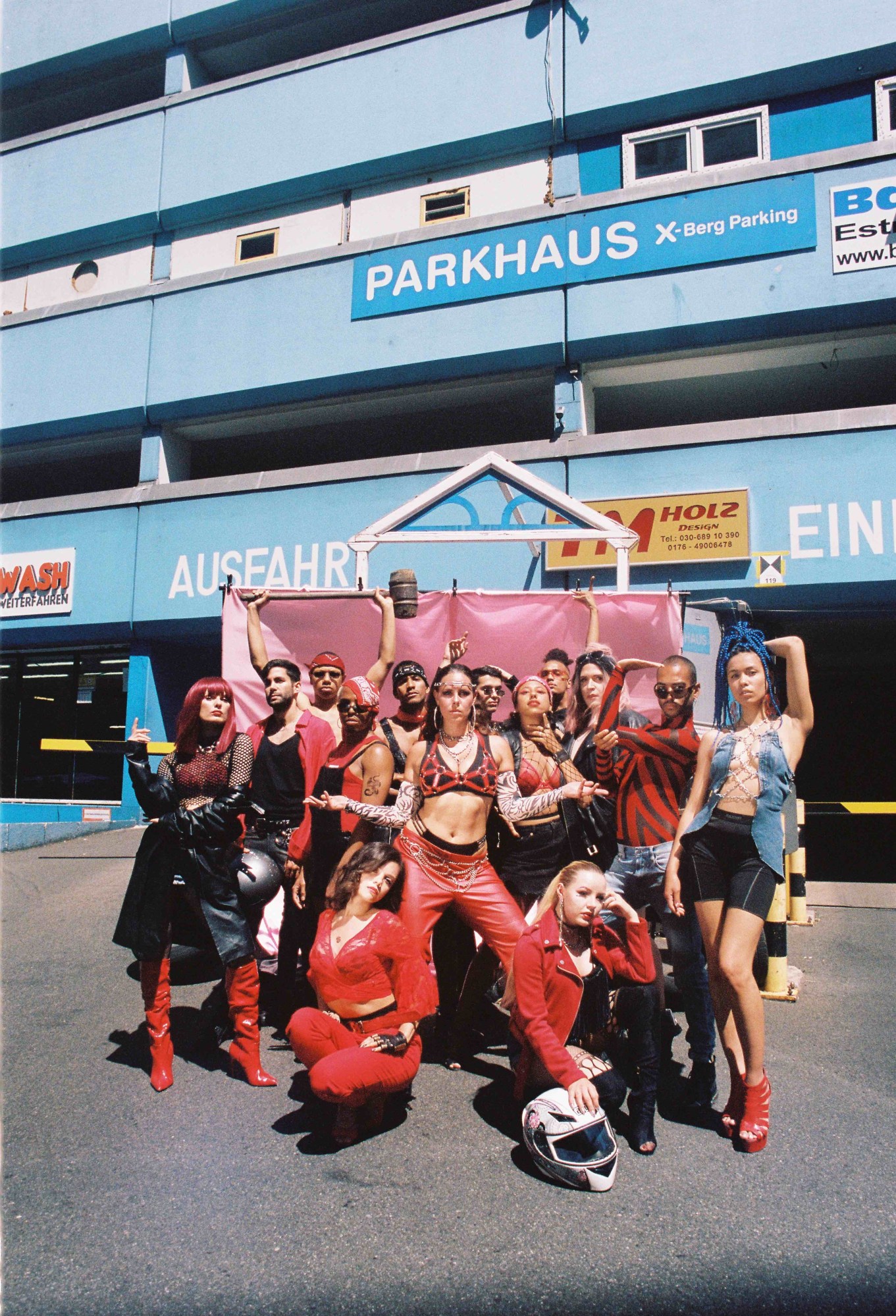This article originally appeared on i-D Germany.
There’s Madonna’s hit Vogue, the moving documentary Paris Is Burning and of course Netflix mega success Pose. Everyone knows about voguing, but wait… do we really? Voguing is a type of dance and part of New York’s ballroom scene, founded by the black and Latinx LGBTQ community in the 70s to escape the marginalisation of a white heteronormative society. So called “houses” became surrogate families for the ballroom kids.
Over the years, ballroom — especially voguing — became a global phenomenon. Maybe it’s the fascination for the extreme movements of the voguers or the feeling of community that spills out to the crowd. It’s not only queer people who are welcome, everyone is, so long as they treat the scene with respect.
“Originally, it was gay and trans people of colour who created this world, this safe space for themselves,” explains Andra Wöllert aka Zueira Mizrahi Angels, who won the Award as Germany’s Finest for the second time in a row. With good reason, as she’s responsible for two houses in Germany: the Kiki House of Angels and the Iconic House of Mizrahi from New York.
But this isn’t all she’s got for you! Zueria is also the host of the first Vogue Ball in the history of Berlin’s Melt Festival. The perfect occasion to get to know the queen of voguing and her ballroom kids a bit more.
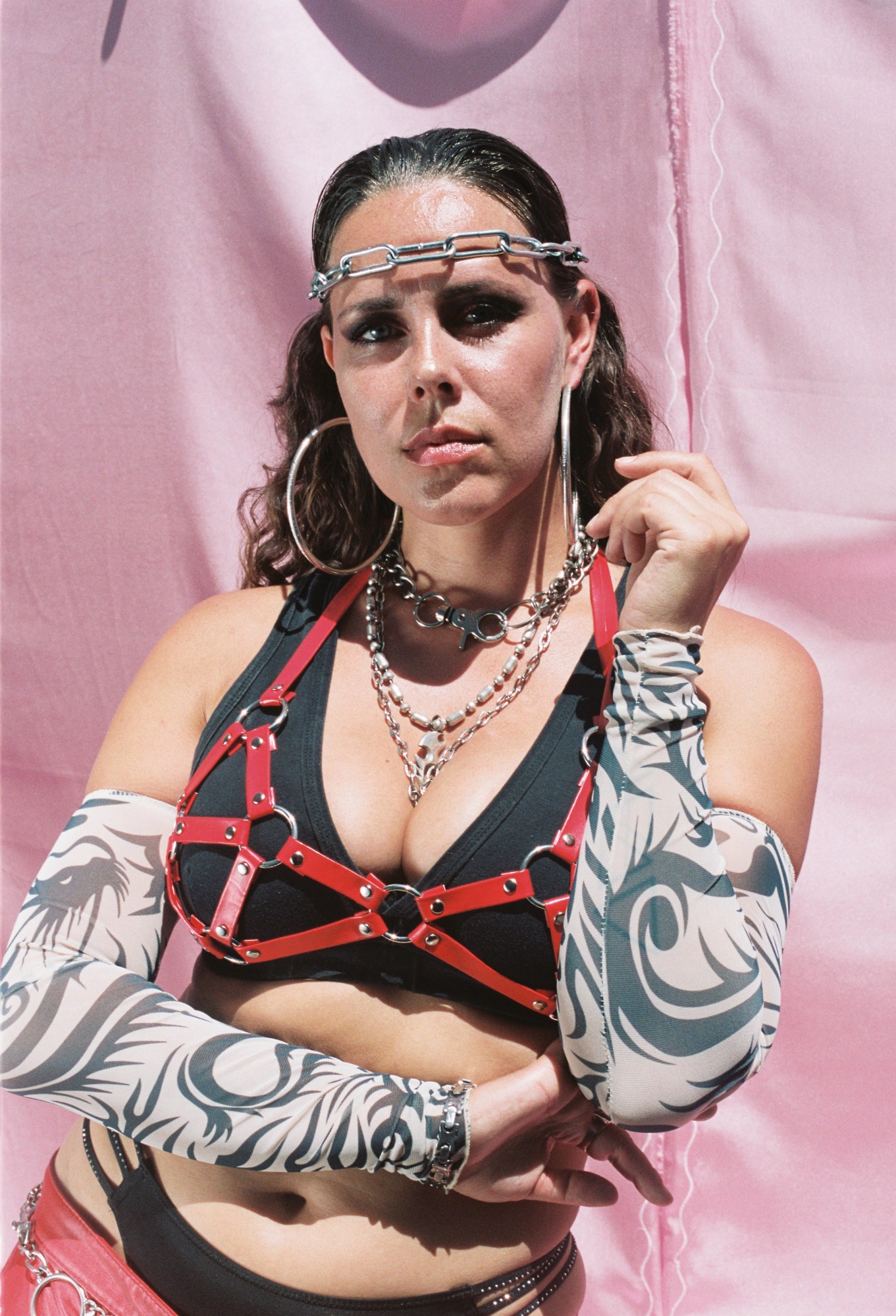
Andra aka Zueira Mizrahi Angels, 33, German Mother Kiki House of Angels and German Parent Iconic House of Mizrahi
What’s the best about being a mother?
To see how someone is growing with and next to you. To shape someone as a performer, but also as a human because most of the kids are 10 years younger than me. It really is a mommy feeling.
Where did your fascination for voguing come from?
I got in contact with voguing as a dancer and realised how unique the aesthetic was and how far away it was from everything I did before. While trying out a lot of things, I found my categories: Sex Sirens and Body — both are very sensual, very naked. I quickly realised I could claim back my own sexiness. It’s something that isn’t something that is put on me from the outside world, especially from men in everyday life. I means that I am the one that can decide to be the uber-woman and hyper-feminine and play with it as a performance, as a character.
Luckily, cis-women also have a space in ballroom as it’s an inclusive culture. It’s not about chat-ups or flirting. You can totally act out and still feel the masculine energy at the same time as you’re not only among females. There is no space for sexism, racism, queer-, trans- or homophobia.
What do you want the people to know about voguing?
Originally, it was gay and trans people of colour who created this world, this safe space for themselves. Everyone should counter it with a healthy portion of respect for a culture that was neither born in Germany nor from hetero-cis women like I am. Watch, learn, and free your most opulent fierce self. Everyone is welcome as long as you bring respect.
What can we expect from your Stainless Steel Ball at Melt festival?
We will see beautiful people in shiny metallic looks, who will compete against each other in a lot of different categories. One of them is called Face, which is all about showing the structure and beauty of your face, but I also added some fun categories like Shake That Ass. We celebrate queerness, femininity and all people from the LGBTQI community. As it’s a competition, nothing is choreographed and anything can happen. It’s gonna be a fucking feast, so come by!
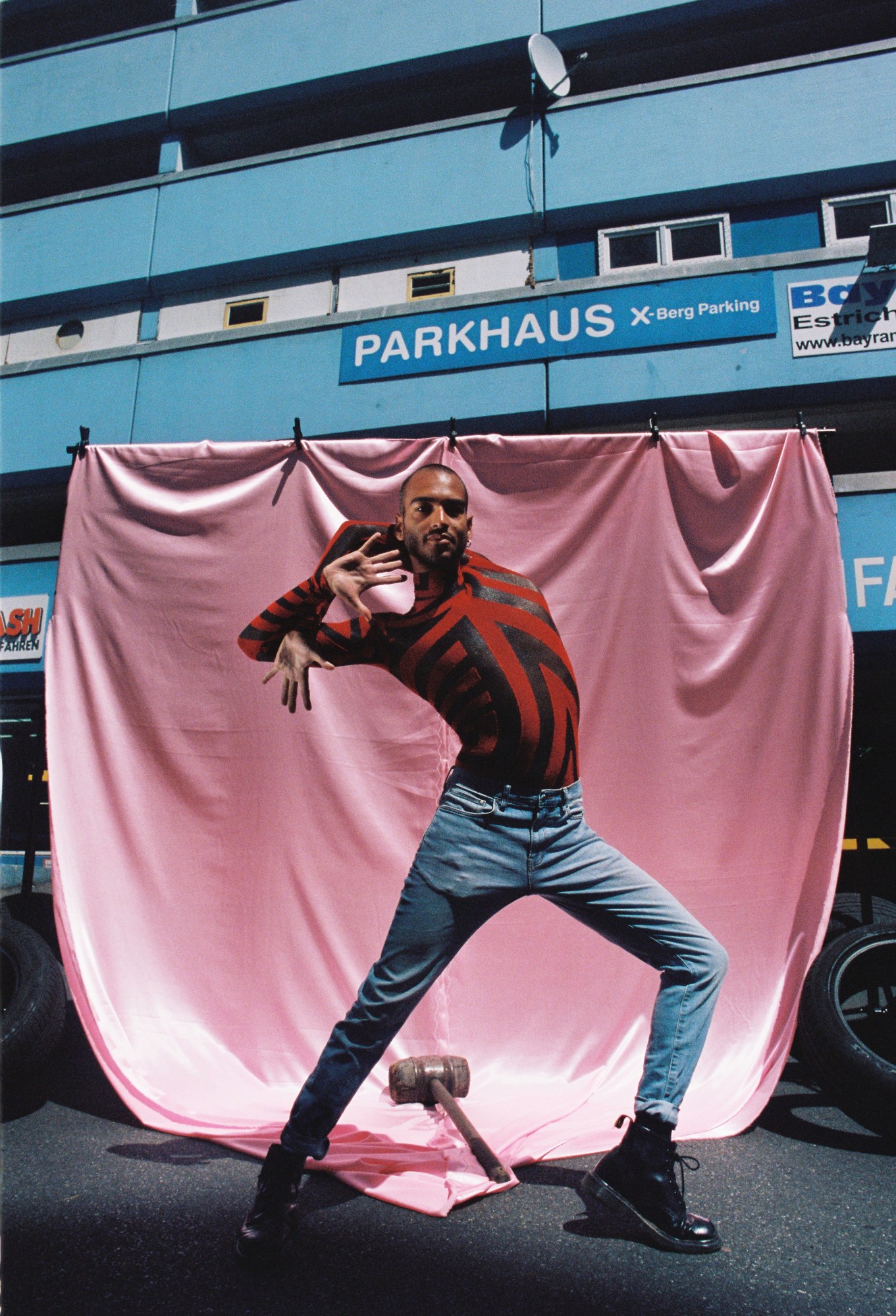
Christopher, 26, aka Christopher Angels Melody
What does community mean to you?
Family. Feeling comfortable and safe. I often don’t feel safe in society because of my skin colour and sexuality — when I hold hands with a man in the streets, for example, and get harassed for it. It not only makes me really sad, but also very surprised that this happens in such a developed, western metropolis like Berlin. Community for me means having support from my network, in which I can be my true self without fear or glances from society.
Berlin is said to be the queer mecca. What do you think of this statement?
It definitely is, that’s why I moved here. We’re still a minority though, and the minority is suppressed by the majority, that’s how it works unfortunately… though it’s less here than in other cities.
What categories do you like to walk?
I mainly walk New Way as I like the aesthetic and the idea of putting your body in impossible positions. I have a black, queer body and I was always told I can’t dance and don’t have the typical body of a ballet dancer. When I do voguing and New Way I can run free, I can be whoever I want to be and make the impossible possible. That’s really empowering for me!
Do you think it’s a good thing voguing entered the mainstream with series like Pose?
I actually think it’s a good thing. A lot of actors are queer and part of the scene, which means it’s made by people from the community and not from someone outside. I have a lot of friends who are trans and have never seen a show in which their lives are presented in a positive way. They always play the victim role but in Pose you see that they are just people who want to live a normal life, who want to be loved and who are powerful.
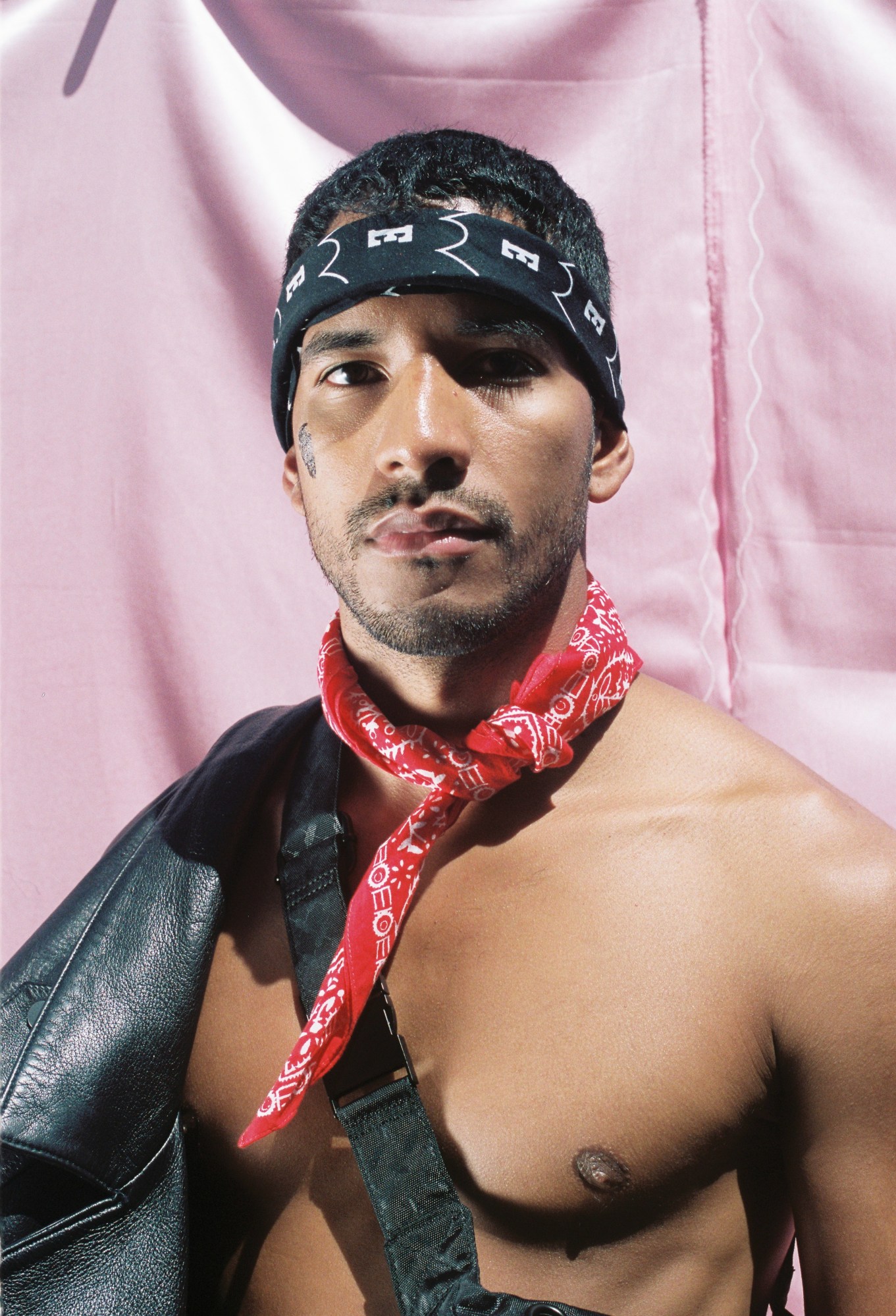
David, 26 aka David Angels
When do you feel free the most?
When I’m on stage and my category is called up. It’s my moment to show how I am and what I am good at. I walk All American Runway, Pretty Boy Realness, Old Way, and Twister. So quite a lot.
How did you first get in contact with voguing?
I started with House Dance and there was this event in America called House Dance International with voguing as a category. At one point I walked in it just for fun and after that I started to dwell on it more and more.
What’s so fascinating about it?
Everyone is unique and everyone is free in whatever they want to do. It’s so much fun. You celebrate yourself when we come together, which doesn’t happen that often in life.
What does community mean for you?
Solidarity. Trust. Going through ups and downs together. And being able to talk about things that are sometimes a bit inconvenient.
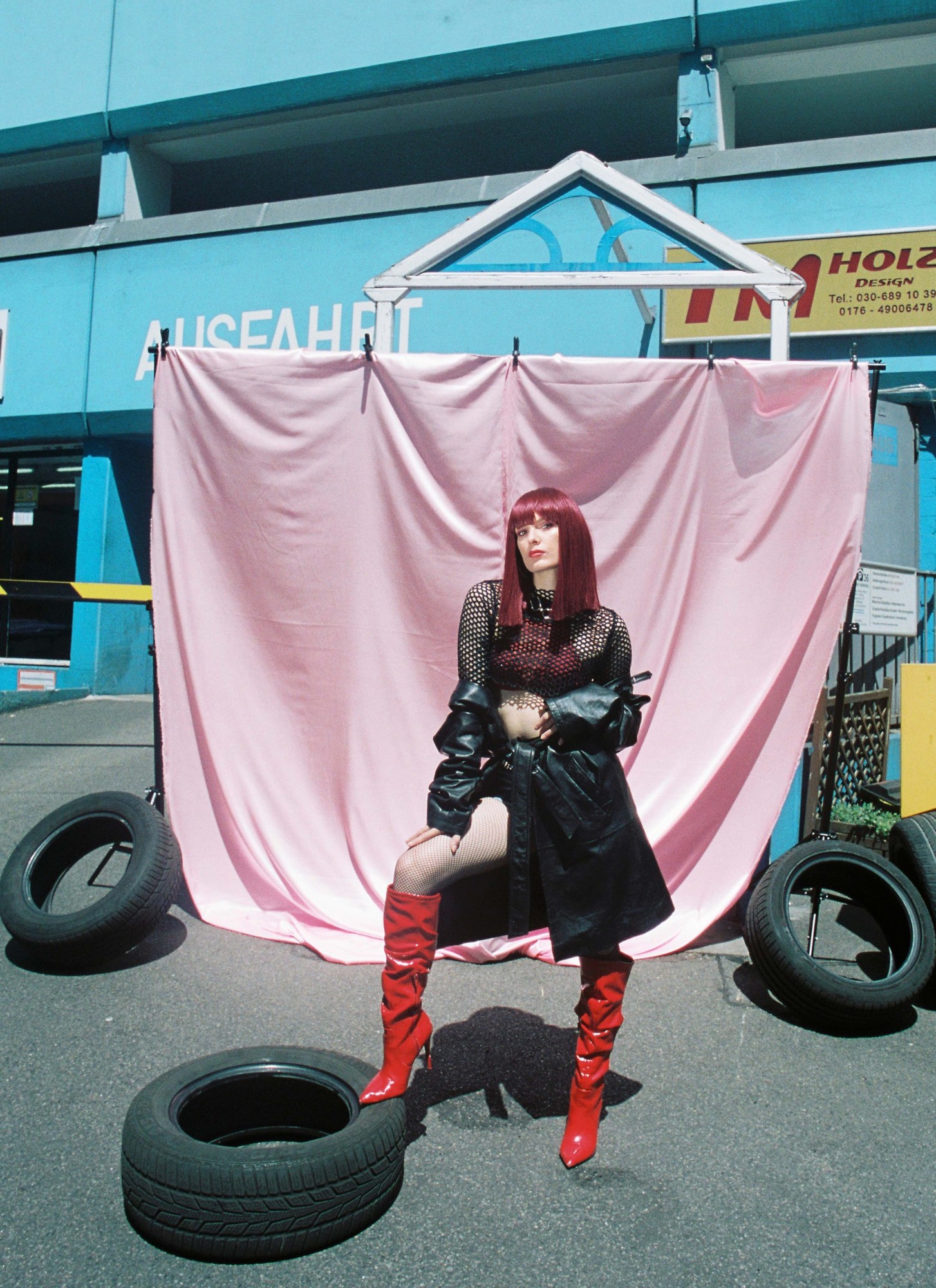
Celine, 24, aka Celeesi Angels
What advice would you give someone who wants to start with voguing?
Don’t be lazy and get informed. You have to approach voguing with a lot of respect as it’s more of a language and culture than a way of dancing you can learn. Go to balls and look for what you like most. If you start loving it, you will find a way.
Ballroom is connected to the LGBTQ scene. How do you see LGBTQ rights in Germany developing?
Just recently, there’s a new flag which includes a colour for the trans community, that’s amazing. Nonetheless there’s also a lot of discrimination taking place within the LGBT community — mainly by white, muscular gays. They are the ones who are in the commercial spotlight most of the time, whereas trans people are left in the background. Thanks to the Netflix show Pose, six of the main actors are trans. Hopefully that’s just the beginning.
Do you think it’s a good thing voguing entered mainstream with series like Pose ?
I think mainstream will always reach the subcultures. All you can do is to ensure there is the right representation. Through the fact that the actors in Pose also do voguing in their real lives, it gives the series the authenticity it needs.
What do you want people to know about voguing?
How much it is connected to history and culture. You should acknowledge that you come from a certain background but also shouldn’t let yourself be defined by it. I, for example, see myself as a guest, but still I don’t define myself by the fact that I’m a cis woman. That’s not the meaning behind voguing. You should be allowed to be the person you want to be without being reduced to the fact that you’re cis, gay or bi.
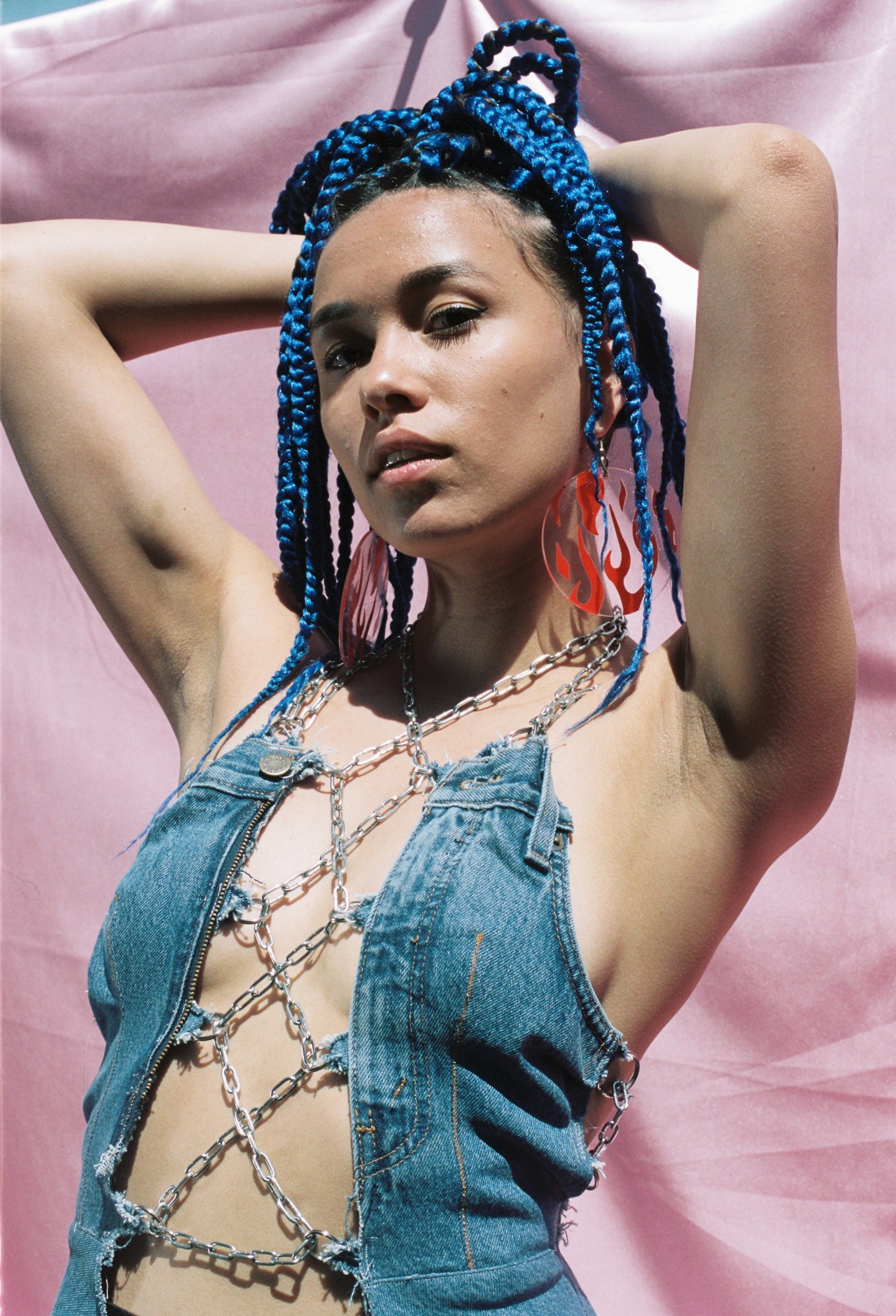
Lucy, 21, aka Kitty Angels
Would you say you found yourself through voguing?
Absolutely, and that was also important. Before I got into it, I lost a bit of connection to what I wanted to do in life. Now I see much clearer who I actually am. I can experiment and play with different looks. Voguing and this community have given me so much in the last few years. After each ball, I’m pumped with energy because we all love the same thing and hype each other. It brings so much positivity!
What do you want people to know about voguing?
It’s important to acknowledge the history; it’s the most important part. It’s a community thing which was born out of a place of oppression. You shouldn’t forget this, otherwise it’s just appropriation.
There’s a huge hype around voguing at the moment. Do you think it’s a good or a bad thing?
It’s good as long as the community profits from it and the magazines or festivals that want to do something with voguing respect that it’s not just something you can sell. When they respect us and pay us for our talent, sure, but if they just want us to make their event cool, it’s not the right way to go.
What do you feel when you’re on stage?
Stress, but only at the beginning. In the first half of the year, there were about a million things running through my head. But once you reach a certain level or walk several times, you know what matters and can relax more. I am still nervous every time I go on stage, but I don’t have to force myself that much anymore.
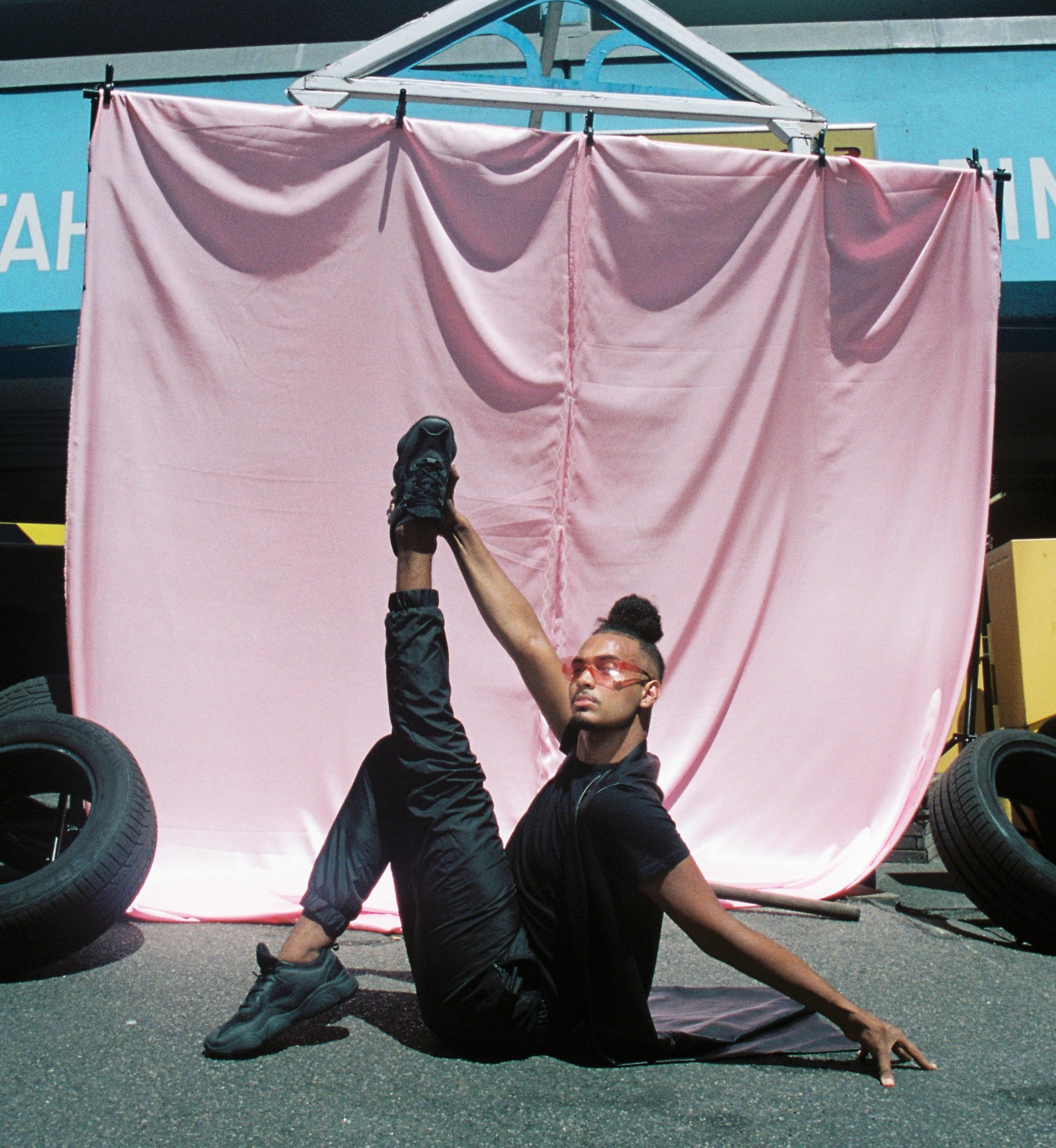
Shayne, 23, aka Shayne Angels
What’s so special about your crew?
We are family. It’s a mix of different people from different fields. As we’re close, it’s very loving.
Do you remember the moment you got in contact with ballroom for the first time?
I was 16 and as a teenager you start googling loads of stuff and spend your time on YouTube. That’s how I stumbled across a one video which was something about voguing to Run The World by Beyoncé.
What does community mean to you?
Solidarity. In some fields, having the same interests and goals. Being there for each other and also to offer criticism if your opposite does something wrong.
How would you describe the feeling when you’re on stage?
It’s an energy boost, similar to having super powers. You have the feeling that nothing can get close to you — not in a sense of snootiness, but rather that you can be yourself. You feel and reflect the energy of the crowd. I am the most myself when I dance.
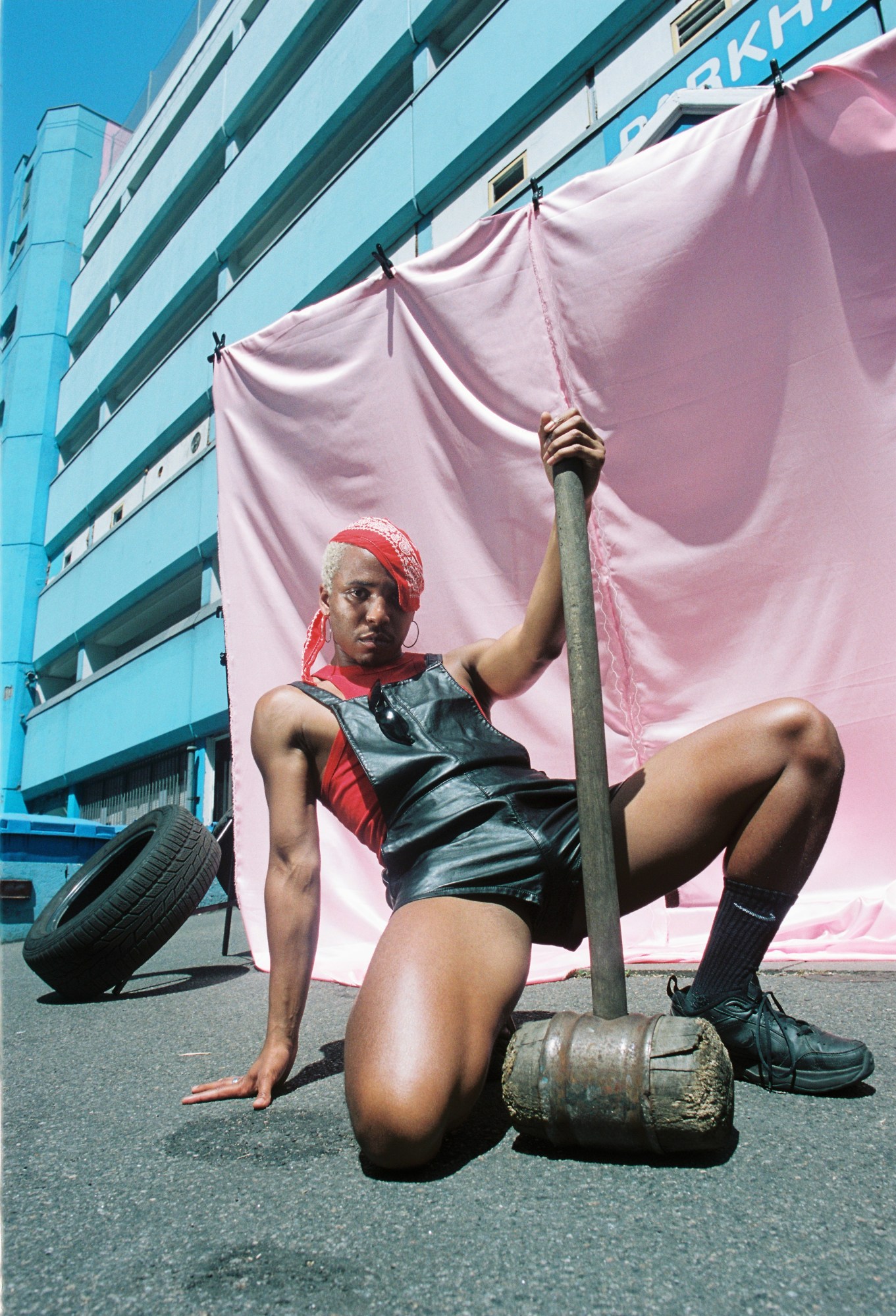
Lee, 26, aka Lee’elle Mizrahi
When do you feel the most free?
When I’m voguing. I tend to overthink things a lot, so often times I just have loads of thoughts running through my head at one time. When a ball is coming up, I’m always the most nervous one. But once I finally get up the confidence, I hit the floor. It feels a bit like a blackout and I become whatever my ballroom persona is at that time.
How did you get in contact with voguing?
I used to watch dancing television shows a lot. One of them was America’s Best Dance Crew on MTV. In season four, Leiomy, Malechi, Dashaun, Pony, and Prince were on and it was the first time that I’d seen it properly on screen, especially vogue fem. Seeing Leiomy doing spins and dips, and what you’d perceive as not masculine. From then on I was watching videos, practicing for hours and hours, sweating, bruising my knees, and eventually I got to a point where I was good.
What do you think of the term ‘new masculinity’?
I wouldn’t say I strive to look straight in my normal life, but I’ve been told that I don’t look gay. But when I hit the floor, I’m a completely different person. It just takes over me in a way that is hard to explain — it’s as if something else comes out. My whole body is pins and needles in a nice, warm way. I feel super feminine and at one with the music. I enjoy it a lot and play with it a lot, too. It’s insane how much freedom it gives you.
What do you want people to know about voguing?
Voguing is almost a tool of an oppressed class. Obviously it was born from black and latino, transgender and gay culture in the 70s. I want ballroom to keep the essence of knowing that it’s a safe space for queer people of colour to feel fab. You are able to wear a dress if you want to, to wear makeup, or dance like a girl. It’s a dichotomy between what your real life is and what your ballroom life is. I want it to be a space for people to escape all the crazy stuff that is happening right now. AND: It’s called a dip and not a death drop. Please RuPaul, just change it. It doesn’t make sense and it sounds dangerous.
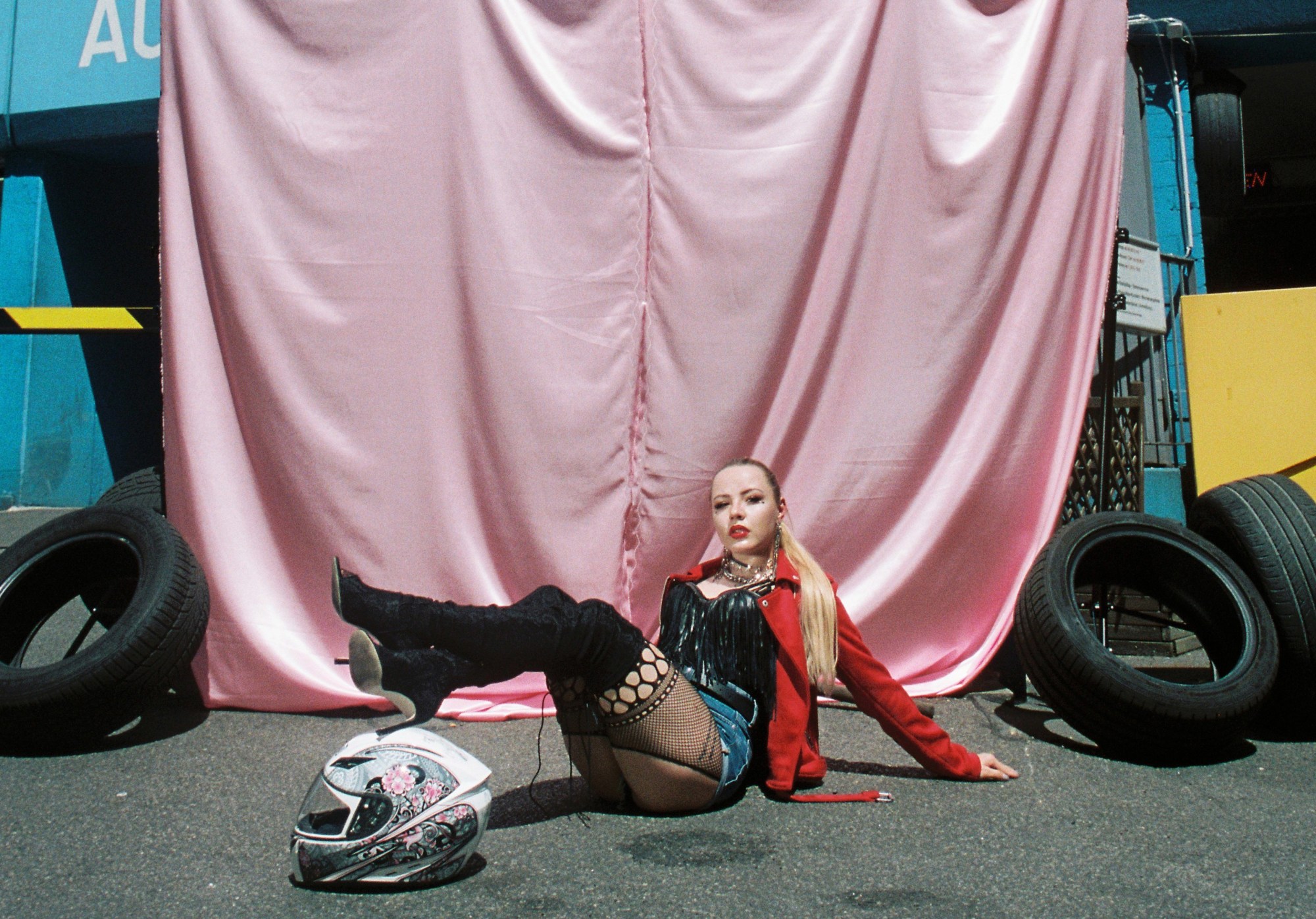
Giulia, 21, aka Princess Blossom Angels
What’s so special about your crew?
We are a real family — I even live together with two Angels. Also, we are in the major scene even though we officially don’t belong there.
What does your dream category look like?
I wish I could walk Body but I’m somewhere between curvy and fitness. That would be my dream category, as I am not confident with my body. But I am also happy with Sex Siren, even though you have to be extremely in the mood for it — and it’s hard to find this in the moment at every ball.
Did the perception of your body change through voguing?
Yes, I didn’t feel happy with my body for a long time. Back then, I weighed 10 kilos more than I do now and still thought I was chubby. But today, my mind’s changed and I feel better from the inside out because I’ve learned to love myself and accept my body the way it is.
When do you feel the most free?
When I dance, wherever or however that is, or when I listen to music that touches me. I like instrumental beats because I can interpret them my way. It’s this feeling of femininity and freedom. Through ballroom I discovered myself, how I wanted to be, and how I can be. I felt at home immediately.
Find more information about the Stainless Steel Ball at Melt Festival here.
